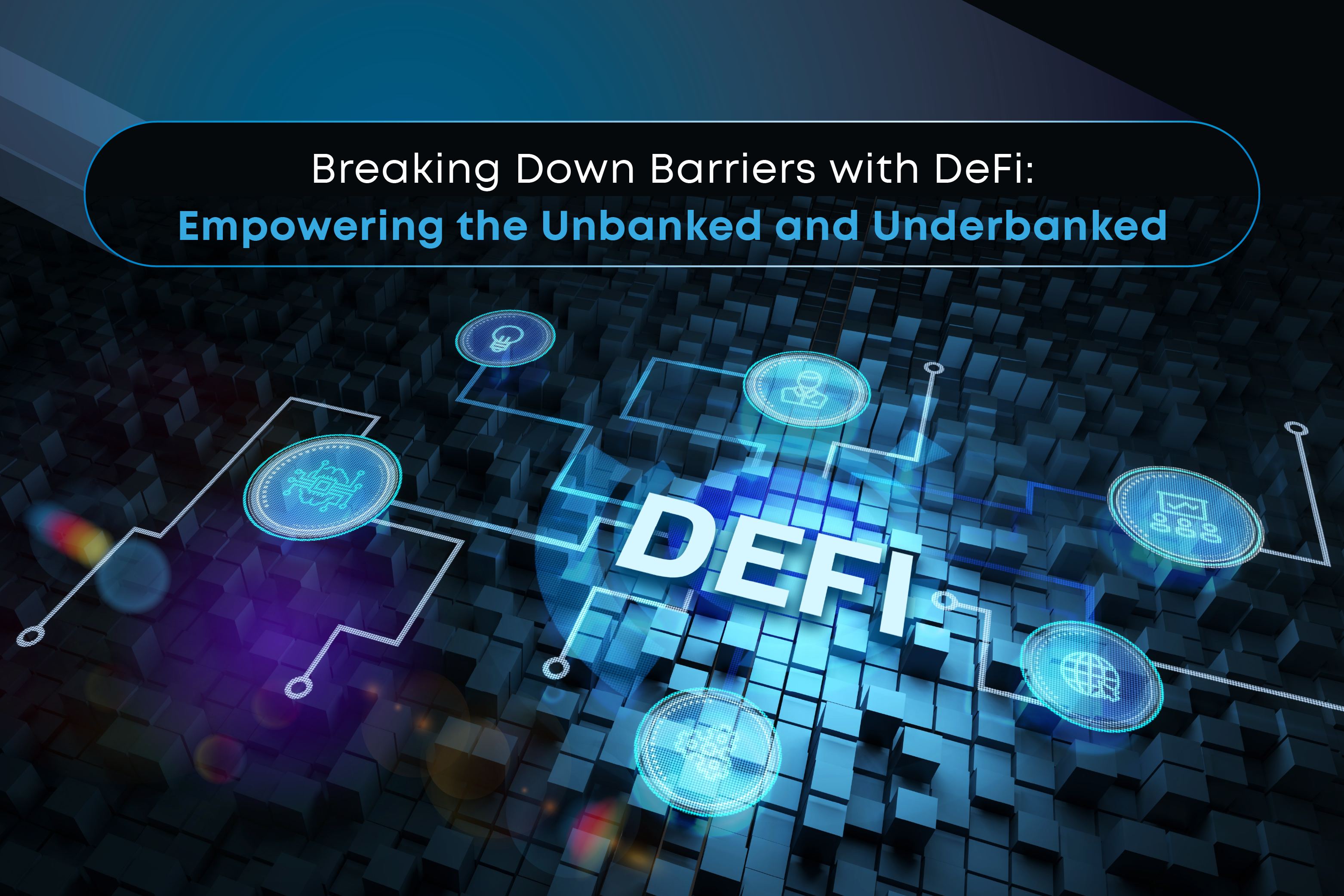
DeFi or Decentralized Finance is the need of the hour. And it has the power to truly disrupt the financial services sector. For the average professional or a resident of a well-developed country, it is easy to access financial services.
However, financial exclusion is a persistent and widespread issue that affects millions of people globally. These people can be divided into two categories:
The lack of access to basic financial services, such as savings accounts, loans, and insurance, severely limits the ability of individuals and communities to improve their financial well-being. Despite the growth of financial institutions and services in many countries, there are still vast populations who remain unbanked or underbanked. Moreover, these populations are often the most vulnerable, living in poverty, and experiencing economic hardship. Financial exclusion has far-reaching impacts, perpetuating poverty and hindering social and economic progress. This problem of financial exclusion requires innovative solutions to provide access to financial services for those who need it most.
However, financial exclusion is a persistent and widespread issue that affects millions of people globally. These people can be divided into two categories:
- Unbanked: Those who do not have a bank account or any interaction with the formal banking sector.
- Underbanked: Those who have a bank account, but still lack access to full financial services and are reliant on alternative financial services such as check cashing, payday loans, and money transfers.
The lack of access to basic financial services, such as savings accounts, loans, and insurance, severely limits the ability of individuals and communities to improve their financial well-being. Despite the growth of financial institutions and services in many countries, there are still vast populations who remain unbanked or underbanked. Moreover, these populations are often the most vulnerable, living in poverty, and experiencing economic hardship. Financial exclusion has far-reaching impacts, perpetuating poverty and hindering social and economic progress. This problem of financial exclusion requires innovative solutions to provide access to financial services for those who need it most.
Overview of DeFi and its Potential to Address Financial Exclusion
Additionally, DeFi eliminates the need for intermediaries and middlemen, reducing costs and improving financial inclusion. The decentralized nature of DeFi ensures that users have control over their financial assets and data, enabling greater privacy and security. With DeFi, anyone can participate in the financial system and take advantage of the benefits that it provides. By providing access to financial services, DeFi has the potential to break down the barriers of financial exclusion and promote financial inclusiveness globally. As DeFi continues to evolve and mature, it is likely to play a major role in shaping the future of finance and improving the financial well-being of people around the world.
Use Case Examples of DeFi in Emerging Markets
- In Sri Lanka, Aon, Oxfam, and Etherisc partnered up to create a DeFi solution that provided insurance to small-time farmers. This was a fully-automated process that enabled farmers who were at risk of losing their crops to mitigate their losses.
- In Southeast Asia, DeFi platforms are providing remittance services at a fraction of the cost of traditional providers, helping to improve the financial lives of millions of people.
- In Latin America, DeFi is helping to address the issue of high inflation and currency instability by providing access to stablecoin offerings. By allowing individuals to hold their savings in a digital asset pegged to the value of a stable currency such as the US dollar, DeFi is helping to protect the purchasing power of people living in countries with volatile currencies.
- In India, DeFi is being used to provide access to affordable credit to small businesses and individuals. By leveraging blockchain technology and smart contracts, DeFi platforms are able to reduce the costs associated with traditional lending and provide loans at lower interest rates. This is particularly important in a country where access to credit is often limited, particularly for the unbanked and underbanked populations.
- In Mexico, BX Smart Labs has created a decentralized app called Bloinx for savings circles. Utilizing blockchain technology, the app allows for automated payments and withdrawals using smart contracts, making it possible for saving circles to be formed regardless of user location.
Future Outlook for DeFi and its Impact on Financial Inclusion
Moreover, as more people and institutions become aware of DeFi and its benefits, it is likely that it will be increasingly adopted and embraced. This will result in a more inclusive financial system, where everyone, regardless of their background or location, has access to the financial services they need to succeed. In the future, DeFi has the potential to play a transformative role in the world of finance, breaking down barriers to financial access and empowering people to take control of their financial future.
Final Thoughts on the Role of DeFi in Promoting Financial Inclusion
It is important to note that DeFi is still in its early stages and much work remains to be done to fully realize its potential. However, the progress that has been made thus far is extremely promising, and the future outlook for DeFi is bright. As DeFi continues to evolve and mature, it will likely play an increasingly important role in promoting financial inclusion and empowering people around the world.
To summarize, DeFi has the potential to change the world of finance, breaking down barriers to financial access and providing people with the tools they need to succeed. The future of DeFi is exciting, and it will be fascinating to see how it continues to evolve and impact the financial world.